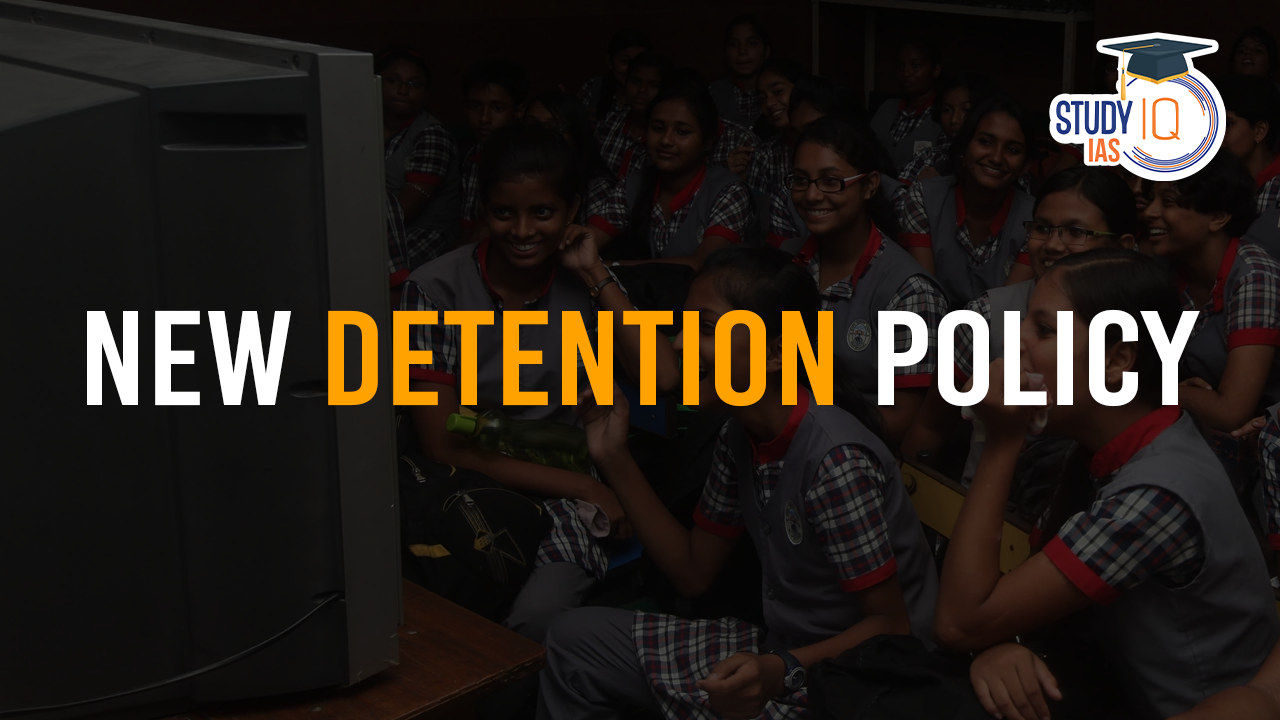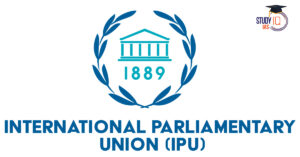Table of Contents
About New Detention Policy
- Provision: Students in Classes 5 and 8 in around 3,000 central schools, including Kendriya Vidyalayas and Jawahar Navodaya Vidyalayas, fail regular exams, the student will be re-examined after 2 months after additional instruction.
- If they fail the re-exam, they may be
- Exam Format: Exams and re-exams must be competency-based.
- Key Safeguard: No child can be expelled from school until the completion of elementary education.
Legislative and Policy Background
- Right to Education (RTE) Act, 2009: Section 16 prohibited detaining students up to Class 8.
- Amendment in 2019:
- Allowed states and UTs to decide on holding back students in Classes 5 and 8 if they failed re-examinations.
- Since then, 18 States/UTs have scrapped the no-detention policy.
Arguments in Favour of New Detention Policy
- Declining Learning Levels: Automatic promotion leads to reduced efforts by students and teachers, resulting in poor educational outcomes.
- Eg., Only 43.3% of 14-18-year-olds are able to solve division problems correctly (ASER Report 2022).
- Higher Failures in Later Classes: Foundational gaps due to automatic promotion contribute to high failure rates in Classes 10 and 12, with 65 lakh students failing in 2023.
- Increased Accountability: Encourages both students and teachers to focus on academic performance, fostering responsibility and commitment.
- Global Best Practices: Many countries use structured assessments and remedial measures, emphasizing accountability over automatic promotion.
- Eg.,
- S. “Grade Retention” System: It is a practice often used when students fall significantly behind in core subjects like reading and math, particularly when their performance on standardized tests falls below state-mandated standards.
- Demographic Dividend: An educated, capable, and skilled population is essential for leveraging India’s demographic advantage, making improvements in education critical.
- Eg.,
Arguments Against the New Detention Policy
- Risk of Dropouts: Detaining students may demotivate them, especially those from marginalized backgrounds, potentially increasing dropout rates.
- Blames Students, Not the System: Fails to address systemic issues like inadequate teacher training, poor infrastructure, and socio-economic challenges.
- Stress on Students: The fear of failure and detention could lead to anxiety and stress, negatively impacting mental health.
- Disproportionate Impact on Marginalized Groups: Students from underprivileged backgrounds, already struggling with systemic inequities, may bear the brunt of this policy.
- Potential Misuse by Schools: Without proper monitoring, schools may misuse the policy to justify administrative shortcomings or underperformance.
- Contradiction with NEP 2020: The NEP advocates formative assessments, self and peer evaluations, and a holistic, 360-degree progress report. The new detention policy fails to align with these forward-looking principles.


 SAMARTH Udyog Bharat 4.0: Transforming I...
SAMARTH Udyog Bharat 4.0: Transforming I...
 BHIM 3.0 Launched by NPCI: Key Features,...
BHIM 3.0 Launched by NPCI: Key Features,...
 150th Summit of Inter-Parliamentary Unio...
150th Summit of Inter-Parliamentary Unio...





















